
Oribi
Safari in National Parks: Tarangire, Lake Eyasi and Ngorongoro Crater
This program is a recent addition to our tour list, but it’s just as exciting and fascinating as the rest. Your first stop is Tarangire National Park, well-known for elephants and baobab trees. Next, you'll spend a whole day getting to know some of Tanzania’s local tribes. We’re talking about the Hadzabe and Datoga people, who still live in the wild - hunting, gathering, and maintaining a traditional lifestyle, untouched by modern-day comforts and global trends. After this cultural experience, you'll head to the famous Ngorongoro Crater, a UNESCO World Heritage Site known for its one-of-a-kind ecosystem that has existed for centuries.
Safari Tour "Oribi" Price
 Safari tour Oribi
Price per person
Safari tour Oribi
Price per person
 Safari tour Oribi
Price per person
Safari tour Oribi
Price per person
"Oribi" Safari Itinerary
The group arrives at Kilimanjaro Airport (JRO). Participants are met by a representative of Altezza Travel and transferred to a hotel in Arusha.
Note:The hotel cost only includes breakfast. Check-in starts at 2:00 PM.
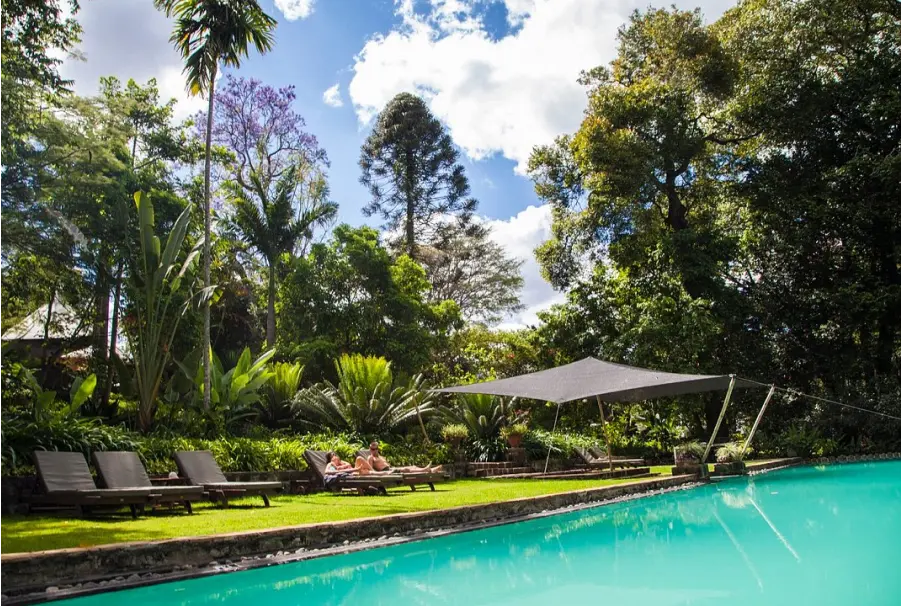
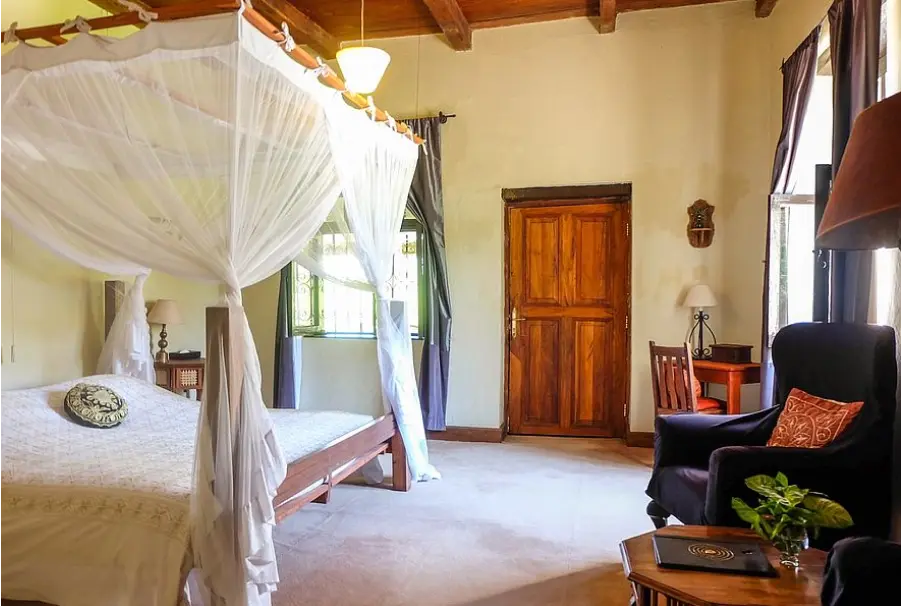
Located on the slopes of Mount Meru, Ngare Sero Mountain Lodge is perfectly suited for exploring the natural beauty of East Africa. The main house is one of the oldest family cottages in Arusha: it was built at the beginning of the 20th century and still retains many features of the original style. Kilimanjaro International Airport is just 27 kilometers (17 miles) away, making the lodge an excellent place for overnight stays between climbing and safaris.
A respectful attitude towards historical heritage is combined at Ngare Sero Mountain Lodge with modern standards of comfort and hospitality. Each room features comfortable wide beds with carved headboards and anti-mosquito canopies, large baths to relax in after a busy day on safari, solid wood furniture, lamps, sockets, Wi-Fi, and everything needed for rest and relaxation.
Long verandas in colonial style stretch along the facade of the house. Sitting in chairs with long armrests, it's pleasant to admire the lake, greenery, and gardens. And when the clouds dissipate, one can see the majestic Mount Kilimanjaro.
The property has an outdoor pool with sun loungers and a spa center where guests can book a massage session or other self-care treatments. There is also a bar and restaurant. Breakfast, lunch, and dinner can be enjoyed in the dining room with an open veranda, in the dining area, or in a secluded pavilion by the lake.
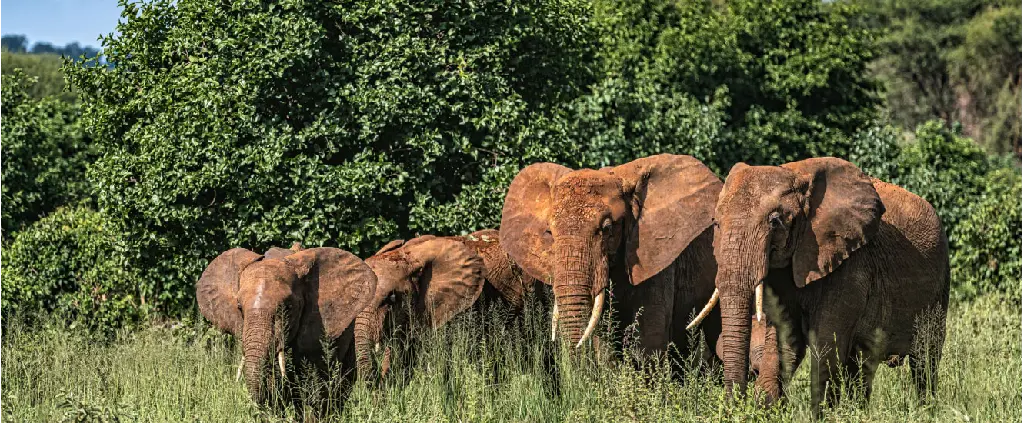
In the morning, after breakfast (around 7:30 AM), your safari guide will arrive at the hotel. After meeting your guide, you will head to Tarangire National Park, and by 10:00 AM, your first safari will begin!
In this park, you'll have the opportunity to see a variety of wild Tanzanian animals, such as lions, buffaloes, giraffes, zebras, and more. However, it is most famous for its remarkable population of elephants, who tend to stay near their drinking source, the Tarangire River.
Please note that this is the wild, natural environment, so your guide cannot guarantee the presence of specific animals. However, you can rest assured that he will do his best to find everything you're hoping to see! Using the radio channel, the Altezza guides communicate with each other and collaborate in searching for rare species.
At lunchtime, you’ll receive a boxed meal, after which the safari will continue. In the evening, you’ll be transferred to your hotel for the following two nights, from where you’ll enjoy drives to Lake Eyasi and Ngorongoro Crater.
Additional notes:
This is your first day on safari, so we kindly ask that you pay special attention to the national park visitor rules and our company’s recommendations:
- It is strictly prohibited to exit the vehicle during the safari, except in designated areas. Violating this rule may result in significant fines for the company, including the revocation of its license.
- Off-road driving is also prohibited as it can cause irreparable damage to the delicate balance of the park's ecosystem.
- Smoking is allowed during the safari, but please be extremely careful when extinguishing and disposing of cigarette butts, as they are a frequent cause of fires in the savanna.
- We kindly ask that you do not put your feet on the seats or sit on the backs of the safari vehicle’s seats, as such behavior quickly damages the vehicle.
Thank you in advance for your understanding!
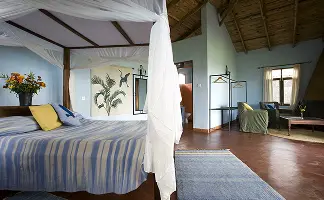

Tloma Lodge is a small hotel from Tanganyika Wilderness Camps collection, boasting an exclusive location right near the Ngorongoro Forest. The lodge offers nutritious full board meals made of products produced on the estate that can be taken in a dining area, indoors or near the heated pool.
Come here in early February when the calving season offers a great chance to capture lovable wildebeest calves and other baby animals with their magnificent parents!
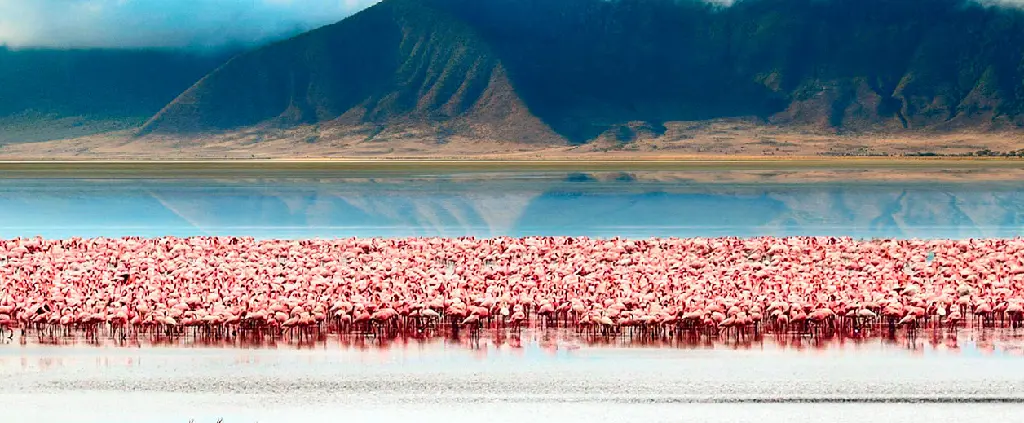
The picturesque Eyasi soda lake, shaped by the Great Rift Valley, is home to two completely different tribes – the Hadza and the Datoga. The Hadza are among the last hunter-gatherers on Earth: they live a nomadic life, walk barefoot, build simple huts from branches and grass, hunt with bows, and collect wild honey. Only around a thousand Hadza remain today. Their language, full of unique clicking sounds, is unlike any other, and their daily life feels like a living window into human history. During your visit, you'll see how they make fire, hunt, and gather food - and if you’d like, you can even try your hand at archery. Your guide will help translate, so you’ll be able to ask questions and hear the honest, heartfelt answers of these remarkable people living in harmony with nature.
The lifestyle of the Datoga is very different. Unlike the nomadic Hadza, the Datoga are farmers and herders: they grow maize, grains, and beans, work the land by hand, and raise livestock. They’re also skilled in blacksmithing and leatherwork - crafting knives, arrowheads, smelting iron, and making handmade jewelry. Forced away from more fertile lands by better-armed tribes, the Datoga settled near Lake Eyasi, preserving their traditions in relative isolation. During your visit, you’ll not only get a glimpse of their daily life, but you can also take part in their crafts, learn about traditional herbal medicine, and purchase handmade items - a beautiful reminder of your encounter with the indigenous cultures of East Africa.


Tloma Lodge is a small hotel from Tanganyika Wilderness Camps collection, boasting an exclusive location right near the Ngorongoro Forest. The lodge offers nutritious full board meals made of products produced on the estate that can be taken in a dining area, indoors or near the heated pool.
Come here in early February when the calving season offers a great chance to capture lovable wildebeest calves and other baby animals with their magnificent parents!
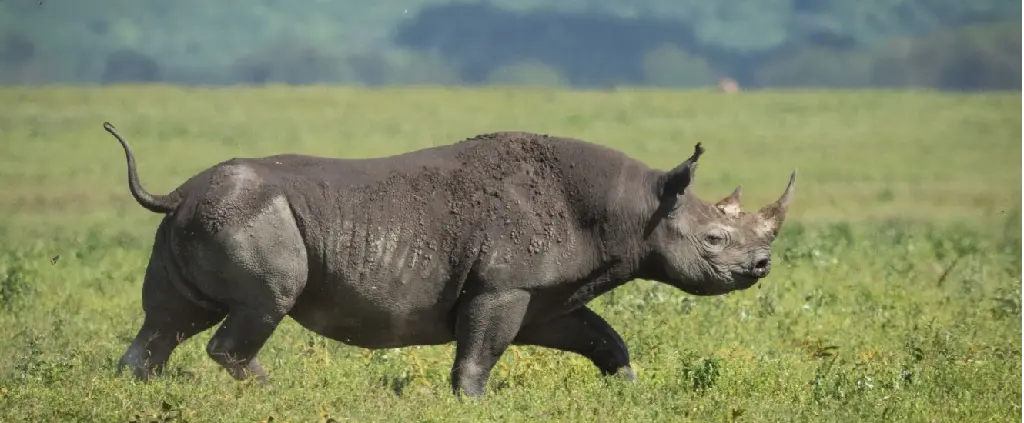
On this day, it is best to leave the hotel as early as possible to maximize your chances of seeing the animals that are most active in the morning. Depending on whether you’d like to extend your safari time, breakfast can either be served at the hotel or packed in lunchboxes for you to enjoy on the go. At 7:00 AM, you will depart for Ngorongoro Conservation Area, and after about an hour, you will enter the crater.
Ngorongoro is one of the most famous and fascinating national parks in Tanzania, as it is home to the highest concentration of animal species per square kilometer. During your visit, you’ll have the chance to see buffalo, elephants, lions, wildebeests, zebras, hippos, and feline species like caracals and servals. The luckiest travelers may even spot a rhinoceros, whose population is rapidly declining.
By lunchtime, you'll arrive at the lakeside, where lunchboxes will be provided. After lunch, you can either continue the safari or begin your drive back to your hotel in Arusha - whichever you prefer!


Located on the slopes of Mount Meru, Ngare Sero Mountain Lodge is perfectly suited for exploring the natural beauty of East Africa. The main house is one of the oldest family cottages in Arusha: it was built at the beginning of the 20th century and still retains many features of the original style. Kilimanjaro International Airport is just 27 kilometers (17 miles) away, making the lodge an excellent place for overnight stays between climbing and safaris.
A respectful attitude towards historical heritage is combined at Ngare Sero Mountain Lodge with modern standards of comfort and hospitality. Each room features comfortable wide beds with carved headboards and anti-mosquito canopies, large baths to relax in after a busy day on safari, solid wood furniture, lamps, sockets, Wi-Fi, and everything needed for rest and relaxation.
Long verandas in colonial style stretch along the facade of the house. Sitting in chairs with long armrests, it's pleasant to admire the lake, greenery, and gardens. And when the clouds dissipate, one can see the majestic Mount Kilimanjaro.
The property has an outdoor pool with sun loungers and a spa center where guests can book a massage session or other self-care treatments. There is also a bar and restaurant. Breakfast, lunch, and dinner can be enjoyed in the dining room with an open veranda, in the dining area, or in a secluded pavilion by the lake.
Rest in the hotel and transfer to the airport.
Note: Hotel check-out is at 10:00 AM. In case you need a late check-out before your evening flight, you have the option to extend your hotel stay for an extra fee. Let your manager know in advance if you need a late check-out.
 Safari Cost Includes
Safari Cost Includes
Transfers
- All transfers described on the program
Accommodation & Meals
- Hotels and lodges described on the program
- Meals described on the program
- Bottled water, soft drinks, hot coffee and tea while in the jeep on safari
Guiding & Game-Driving
- Certified and experienced English-speaking safari guide
- Comfortable Land Cruiser 4x4s with pop-up roof, fridge, Wi-Fi, and power outlets
- National park fees for the entire tour (park entry fees and concession fees)
- Free Wi-Fi. Signal will be available in only 60-75% of the travelled territories due to lack of cell coverage in the wilderness areas
- 24/7 phone support service
- Air Ambulance Service by AMREF Flying Doctors
- Binoculars (1 pc per SUV)
- Medical kit
 Safari Cost Excludes
Safari Cost Excludes
- Air tickets;
- Visa fee;
- Travel insurance;
- Tips to your safari guide ($30-50 per day per car).
Please note:
- By default our tours include shared accommodation in twin/double rooms, unless requested and agreed otherwise. Single supplement is available upon request. Please refer to the program to see your accommodation arrangements
- Moshi and Arusha-based accommodations usually include breakfast only, unless requested and agreed otherwise. Please refer to the program to see your meal plans on each night
- Most safari lodges usually do not include tea, coffee, soft and alcoholic drinks not to have you overpay for beverages you don't need. You will be able to order and pay for drinks at the hotels' restaurants
- Tented lodges are the most common type of accommodation in savannah. Many of them work on solar energy. This sometimes means bucket showers, limited wi-fi and no hair dryers, all in an effort to reduce environmental impact. We encourage you to do some basic research on the accommodations in your program to ensure the safari matches your travel style

















 View All Tours
View All Tours